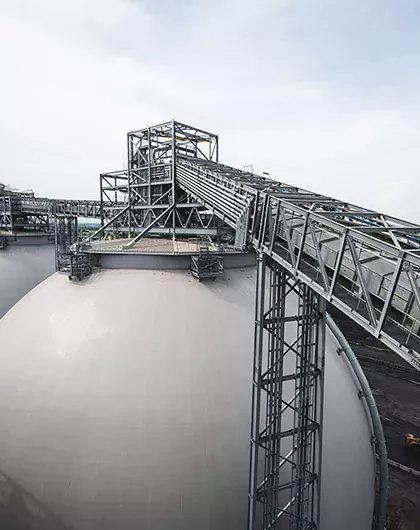Your EPC report for energy efficiency insights whether you're selling, leasing, or re-leasing your building.
Energy Performance Certificates (EPC) demonstrates how energy efficient a building is and provides a rating between A and G, A being the best and G being the worst.
What is an EPC certificate?
An Energy Performance Certificate (EPC) demonstrates how energy efficient a building is and provides a rating between A and G, A being the best and G being the worst. The EPC will also provide recommendations on how to improve the building’s energy efficiency, as well as its EPC rating.
When is an EPC certificate required? Do I need an EPC to rent or lease my property?
An Energy Performance Certificate is required within seven days of a property being placed on the market for sale or rent, or as soon as it has been constructed. Property owners and landlords must make sure that the EPC is available for potential buyers and tenants to access for free. An EPC is also required if the building is being re-leased to the existing tenant.
Is an EPC certificate a legal requirement?
EPCs became a legal requirement in 2008 in England, Wales and Northern Ireland and 2009 in Scotland. All properties that are either new builds, being sold, leased or re-leased will require an EPC.
As of 2018, landlords are now legally required to achieve a minimum rating of ‘E’ on their Energy Performance Certificate so the property can be leased or re-leased. If the property is rated below an ‘E’, the landlord must either:
- Make adequate energy saving improvements in order to meet the minimum EPC rating
- Place the property on the EPC exemption register.
As of April 2023, all properties are required to have an EPC rating of E or better for the existing lease to continue, or for the property to be placed on the EPC exemption register (in line with MEES regulations).
When does a building not require an EPC?
In terms of buildings that do not require an EPC, there are a number of exceptions. This includes but is not limited to:
- Buildings used as places of worship
- Certain buildings due to be demolished
- Temporary buildings that will be used for two years or less
- Properties located within a conservation area
- Standalone buildings with a floor < 50msq.
Listed buildings will require an EPC assessment to determine whether improvements can be undertaken in order to improve the EPC rating.
How do I get an EPC certificate?
If you need an Energy Performance Certificate for your property, you must first check whether the EPC has expired. If so, you will be required to book a property assessment in order for a new EPC to be generated, which should be carried out by an accredited energy assessor. The assessor will work through their EPC checklist, determining factors such as construction and insulation details, heating systems, lighting etc.
All EPC certificates are valid for 10 years and come with a recommendation report, including suggestions and advice on improvements to reduce carbon emissions.
What do I need to do to improve my EPC rating?
The EPC rating informs buyers/tenants what they can do to improve the energy rating of a property. There are a range of actions that you can take to improve your EPC rating, from major developments such as adding insulation and installing Air Source Heat Pumps to installing solar panels and switching to energy-saving LED lightbulbs.
How can SOCOTEC assist my organisation with EPC compliance?
SOCOTEC has a wealth of experience in undertaking EPCs and providing information on how to improve a building’s rating overall. EPC improvement projects start with a site visit to collect the relevant dimensions and information to produce a current ‘baseline’ EPC. Detailed energy improvement modelling is then used to provide the options and associated budget costs to achieve the required improvement in EPC rating for the building.

Talk to our experts
Want to find out more about how SOCOTEC can support with EPCs?
Read related news:
Other news








